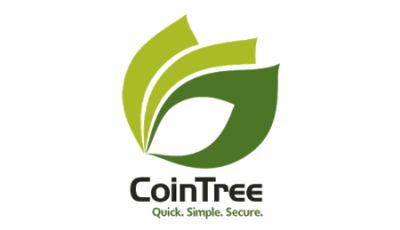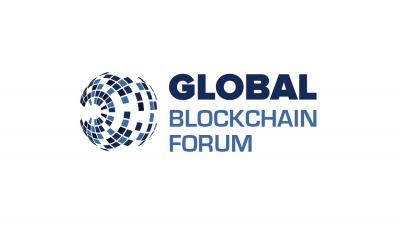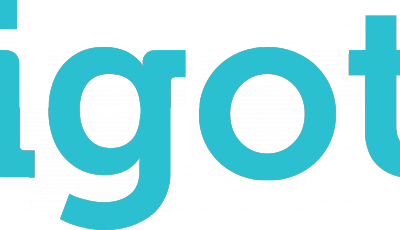ADCCA working on code of conduct as Igot customers demand bitcoin refunds

World Square, corner of George Street and Liverpool Street, Sydney, Australia. ADCCA’s PO Box numbered 21122 is located inside World Square.
The Australian Digital Currency & Commerce Association (ADCCA) issued a press release Tuesday stating that an industry code of conduct would have protected customers of the Australian-founded bitcoin exchange Igot, which was the subject of an investigative news program that aired on Monday.
“The impact on consumers is clearly devastating,” said the organization’s CEO, Nicholas Giurietto, in the statement.
The Australian Broadcasting Corporation (ABC) reported that dozens of Igot customers and clients are claiming to be owed hundreds of thousands of dollars, and for months the company has not been able to completely return money.
Igot founder Rick Day acknowledged to the broadcaster that the exchange is struggling to pay customers.
“I am well aware that customers are affected and customers are really unhappy with this but I would like to show each and every one that we have not lost their money,” said Day. “We have not run away with anything and we will return the money.”
But Day’s comments offer little comfort to bitcoin investors, reported ABC.
“I think Igot are not being transparent. They are not really speaking up about what is the issue that’s holding our money back,” said investor Akram Bekzada, who has been trying to withdraw $13,000 AUD worth of the digital currency since last October. “A lot of times they give reasons that don’t stack up. A lot of times they say we have a problem with cash flow and then they say we cannot transfer bitcoins or we cannot cancel the transaction and transfer bitcoin.”
Bekzada filed complaints with national regulators such as the Australian Securities and Investment Commission (ASIC) and the Australian Competition and Consumer Commission, but was told by all they were powerless to act.
ASIC told the Sydney Morning Herald it was unable to act on claims it received regarding Igot because bitcoin is not considered a financial product or service.
The commission said it would investigate Igot if it collapsed.
“As with any company, if it were to go into administration or liquidation and there was suspected wrongdoing or breaches of the law, it would be a matter we would look into,” said an ASIC spokesperson to the newspaper.
ABC reported that DigitalX, a blockchain-based software solutions company listed as Digital CC on the Australian Securities Exchange (ASX), is owed $180,000 and taking legal action against 13th Pty Ltd – Igot’s business entity – on the matter.
Day referred to the court action as “merely a commercial dispute,” telling ABC that “our lawyers are working with theirs to have it resolved. I’m confident it will be resolved.”
ABC reported that American entrepreneur Jesse Chenard, who worked with Igot as an advisor in 2014, looked into the exchange’s finances before investing money into the company and found some issues.
“I think at the time Igot was insolvent but because Rick claimed to have other assets and because everything was murky and in his name and what have you, he claimed that he was able to cover it and it was a small accounting thing,” Chenard said. “So as to whether the company was insolvent? I would say the balance sheet looked pretty crappy.”
Chenard told ABC the exchange was not buying enough bitcoin for the amount of money it was taking in. “What people thought they had bought with their Australian dollars or Indian rupees or US dollars or whatever currency they were dealing in – they hadn’t actually bought. It hadn’t been bought for them.”
Chenard quit advising Igot and decided against investing. He convinced his friend, Patrick Manasse, with whom he later formed the blockchain solutions firm MonetaGo, to bail as well.
Day, who maintains Igot was – and is – solvent, told ABC that there was a falling out with Chenard because Chenard wanted more equity in the exchange.
The broadcaster also reported that many dissatisfied customers have taken to social media to air their complaints about not being paid.
Owen Champion, a recently laid-off software developer who has been trying for months to withdraw his $7,000 worth of bitcoin, posted online that ABC had interviewed him. Soon after Day paid him half his money back.
“It pisses me off,” said Champion. “It took me forever to save up that money and I just assumed that since they’re in Australia there would be sort of safety net or regulation or something like that – bare minimum – whether [Day] could be accountable for his actions and it seems like no-one’s really helping.”
Following up on its investigation into Igot, ABC reported that ADCCA has distanced itself from the exchange.
“Igot are not a member of ADCCA…it certainly looks like they’ve let their customers down really badly which of course is devastating to those individuals affected,” said Giurietto to the broadcaster. “In any growing industry sometimes there are players that aren’t are reputable as we would all like.”
ADCCA is in the midst of finalizing a voluntary code of conduct, “taking the protection for consumers to a whole new level,” said Giurietto. The development of such a code was recommended in a senate inquiry into digital currencies that concluded last summer.
He said in the press release that under the new Digital Currency Industry Code of Conduct, to be formally launched in May, ADCCA Certification “will provide externally audited reassurance to consumers that they are dealing with a business with strong consumer protection processes in place. These include privacy and data security standards and membership of an external dispute resolution scheme.”
Giurietto added, “Crucially, the Code of Conduct also requires any digital currency exchange that receives customer funds but is unable to fulfil a customer order within 24 hours to place those funds in a separate trust account. This obligation would have provided important protection to the customers of IGOT.”
Igot’s struggles and customer complaints have spurred calls for greater scrutiny of the bitcoin industry in Australia, reported the Sydney Morning Herald.
David Temple, co-founder of the Melbourne-based bitcoin agency Coin Loft, told the newspaper that greater regulation would bring the country into lines with plans in Europe and the United States.
“When you’re talking about money, which bitcoin is, governments have to regulate it as best as they can,” he said to the newspaper. “I’m sure no one is clear what form that will take, or how easy it will be to regulate. But we’re certainly keen for this to happen and hopefully we will be able to shape that.”
The case with Igot’s highlights the lack of formal regulatory oversight in the industry, said Adrian Przelozny, chief executive of the bitcoin exchange group Independent Reserve, to the Sydney Morning Herald.
“There have been frequent reports of customers being unable to withdraw money from Igot for the past 12 months, so the recent news is not entirely unexpected,” he said. “What appears to have happened at Igot is very unfortunate and it illustrates the need for greater regulation in the industry.”
Przelozny added, “The digital currency industry is currently largely unregulated, which means that there is a burden on the consumer to [do] their own research on the companies that they deal with.”
Martin Davidson, an executive at the bitcoin mining operator Bitcoin Group, which had to remove its float on the ASX last month, told the Sydney Morning Herald that too many people were using bitcoin exchanges “like banks” and storing funds with companies instead of making simple exchanges.
“Anyone can set up a website with pretty pictures, set up PO boxes around the world and call themselves a bitcoin exchange,” he said. “These bitcoin exchanges are not registered financial services companies, they do not have an [Australian Financial Services] licence.”
However, Davidson said the case does not point to wider issues within the industry, stating that he doesn’t think to have any effect on bitcoin’s price or general confidence of the market.
For its part, ADCCA is not in favor of greater government regulation. “Consumer protection is extremely important [but] letting it get too far and destroying the industry is not a smart move,” said Giurietto.
Image credit: (CC BY-SA 2.5)











